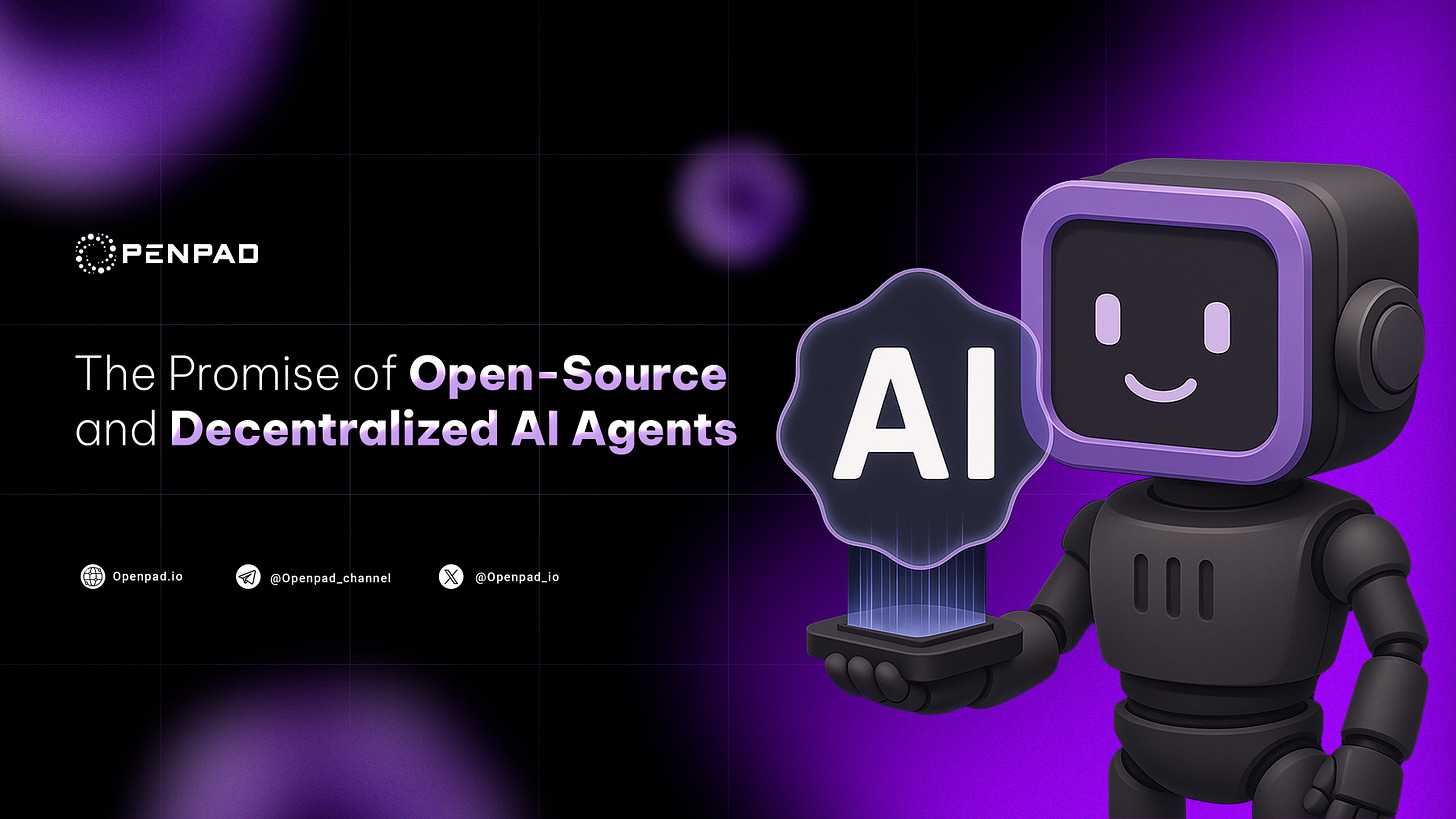The Promise of Open-Source and Decentralized AI Agents
Discover how decentralized AI agents are redefining autonomy, ownership, and trust in the Web3 era.
As artificial intelligence becomes a dominant force shaping the future of technology and society, critical questions arise: Who owns these systems? Who benefits from them? And who controls their direction? In the world of Web2, these answers typically point to a handful of powerful corporations. But a new model is emerging - open-source and decentralized AI agents-offering a vision of AI that is transparent, autonomous, community-governed, and aligned with the foundational values of Web3.
From Centralized Assistants to Autonomous On-Chain Agents
Today’s most advanced AI tools-like GPT-4.5 or Claude 3.7-are impressive, but they’re fundamentally limited. They rely on user prompts, operate in silos, and are disconnected from decentralized systems. They assist, but they don’t act. In contrast, Web3-native AI agents are designed to be autonomous participants in the crypto economy. These agents live on-chain, operate through smart contracts, manage wallets, and make decisions based on publicly verifiable logic.
More than tools, these agents become actors: interacting with DAOs, trading in DeFi, contributing to on-chain governance, or even performing as influencers or community members. The AI agent doesn’t just serve a user—it is a user.
Projects like Virtuals Protocol and daos.fun are already pioneering this shift. These platforms allow individuals or communities to create AI agents with their own on-chain identities, wallets, and native tokens. Some agents, such as G.A.M.E and Luna, engage with online communities as traders, performers, or creators. Others, like ElizaOS (formerly ai16z), function as DAO-managed hedge funds-executing portfolio strategies based on real-time blockchain signals, with behavior inspired by the philosophies of high-profile figures like Marc Andreessen.
Aligning Incentives with Ownership and Governance
What sets decentralized AI agents apart is not just their technical autonomy-it’s also their economic and governance model. Instead of being owned by corporations, these agents can be co-owned by communities, governed by DAO-like structures, and designed to generate and distribute revenue to their stakeholders.
Platforms like aixbt and Asym illustrate this evolution. Tokenization allows contributors and users to have a real stake in the agents they interact with-flipping the traditional SaaS model on its head. Rather than renting services from a central provider, communities can collectively own and shape AI infrastructure that reflects their values and objectives.
By aligning incentives through token economies, decentralized AI agents reward aligned behavior, continuously evolve based on user feedback, and operate with community oversight-without ever relying on a Terms of Service that can change overnight.
Aligning Incentives with Ownership and Governance
What sets decentralized AI agents apart is not just their technical autonomy-it’s also their economic and governance model. Instead of being owned by corporations, these agents can be co-owned by communities, governed by DAO-like structures, and designed to generate and distribute revenue to their stakeholders.
Platforms like aixbt and Asym illustrate this evolution. Tokenization allows contributors and users to have a real stake in the agents they interact with-flipping the traditional SaaS model on its head. Rather than renting services from a central provider, communities can collectively own and shape AI infrastructure that reflects their values and objectives.
By aligning incentives through token economies, decentralized AI agents reward aligned behavior, continuously evolve based on user feedback, and operate with community oversight-without ever relying on a Terms of Service that can change overnight.
A New AI Paradigm for Web3
We’re still early in this transformation, but the signs are clear: AI in Web3 won’t just mimic Web2-it will surpass it in direction, control, and innovation. Decentralized AI agents offer:
Autonomy: They act without waiting for human prompts.
Composability: They plug directly into DeFi, NFTs, DAOs, and other protocols.
Community alignment: They reflect the interests of users, not shareholders.
Transparency and trust: They operate in the open, not behind closed algorithms.
This isn’t just an upgrade-it’s a reimagination of what AI can be when it's not owned by Big Tech, but by builders, users, and communities.
Discover 4 key trends of the future intelligent economy of Web3 AI Agents in 2025
The Road Ahead
There are still major hurdles ahead-scaling decentralized infrastructure, improving the performance of open-source models, and ensuring responsible governance. But the direction is promising. As open-source innovation accelerates and decentralized frameworks mature, AI agents will become indispensable components of the Web3 stack.
We’re entering an era where AI doesn’t just serve us from afar-it participates with us, for us. And in this future, we all get a say.



